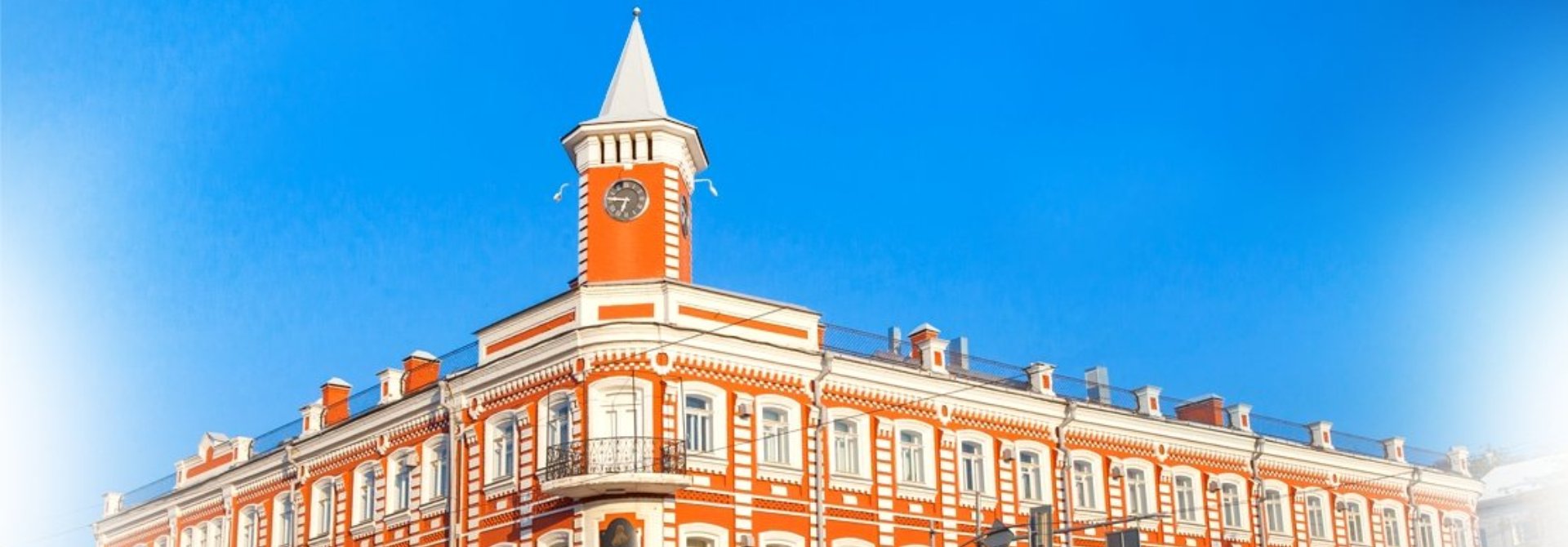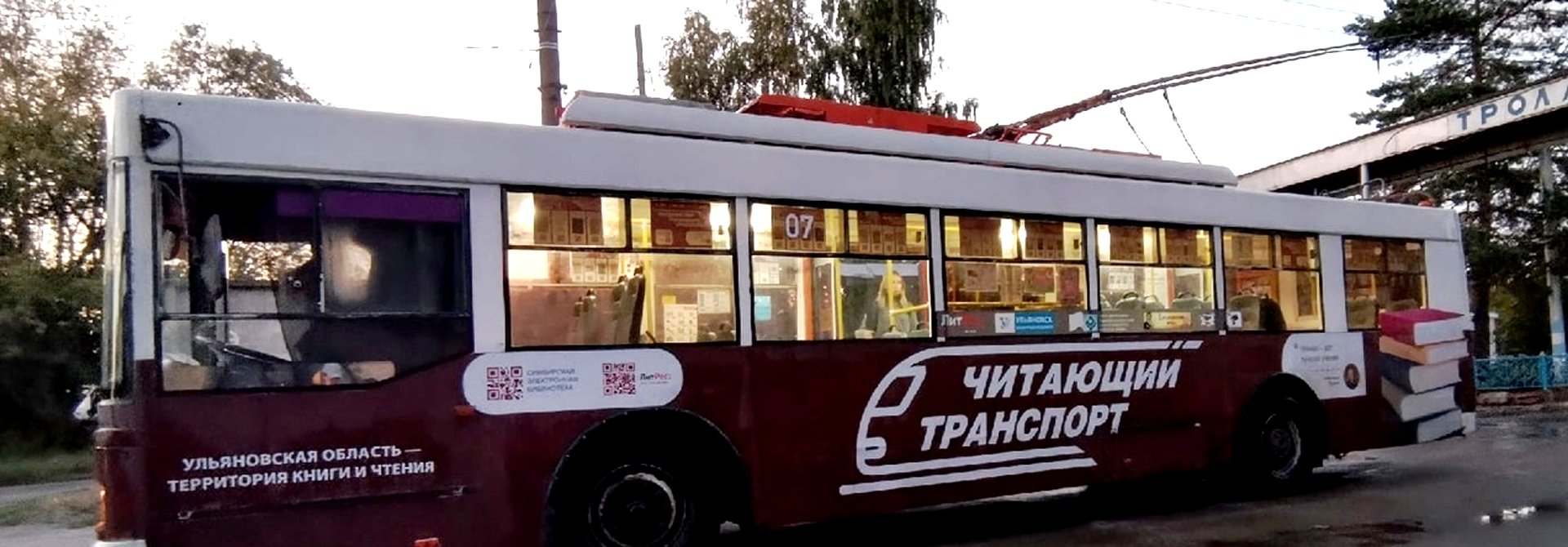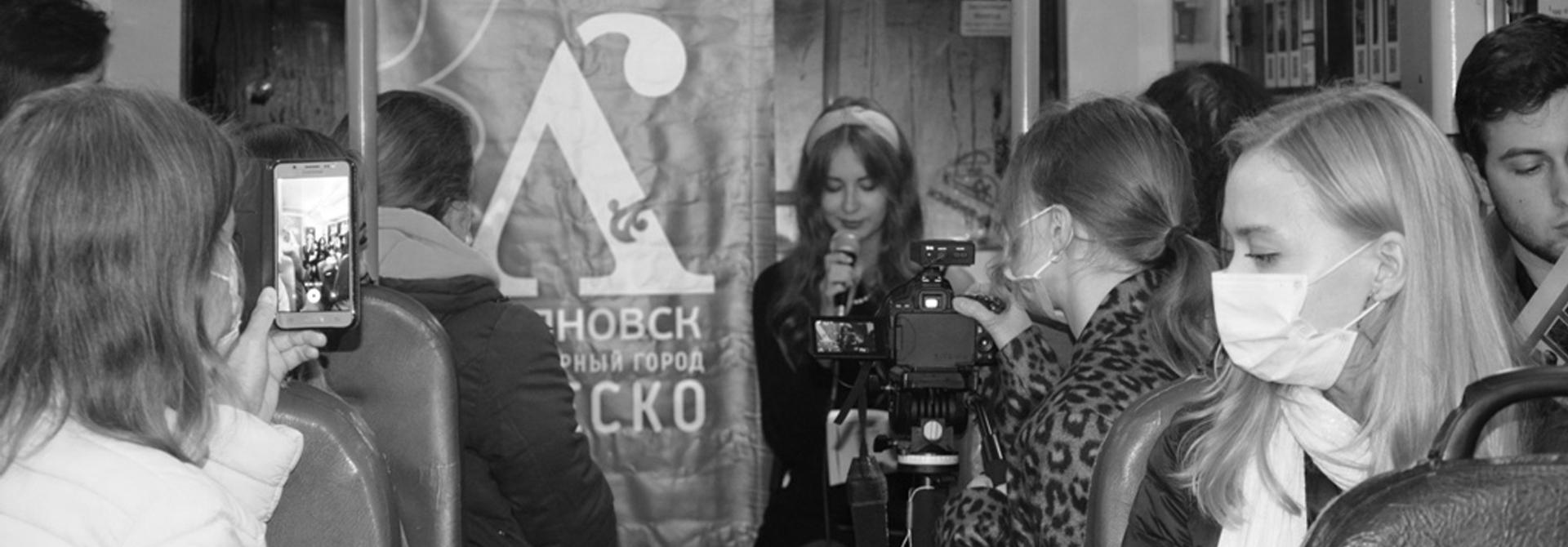
The Ulyanovsk UNESCO City of Literature Program Directorate continues publishing The Only Question Project materials. 40 authors from 18 UNESCO literary cities (and 7 related cities) participate in the project. Meet our new guests – the authors from Iowa City and Québec – Jeremy Geragotelis and Vanessa Bell.
The organizers invited writers, poets, playwrights, translators from UNESCO literary cities to imagine they have the opportunity to ask just one question to an author from any other literary city. The initiative will help to introduce the authors from the literary cities to each other and establish their dialogue. The project will also let to understand what issues are of concern to authors from different countries today. Besides, it will provide an opportunity for readers to get to know new writers and poets.
Questions and answers by the authors (in Russian and English) along with a short biography of each participant and links to their publications will regularly appear on the Ulyanovsk UNESCO City of Literature Website, other literary cities' websites, and social media, etc. Writers' dialogs will also be offered for publication on the project partners' platforms (literary magazines, libraries, literary media, and mass media). As a result of the project, in summer 2022 an online anthology will be released (in Russian and English) with all the conversations.
Iowa City and Québec – Jeremy Geragotelis and Vanessa Bell
Vanessa Bell
Hi Jeremy! I watched both of your plays/movies on YouTube and was quite moved. I've figured instead of a real question, I'd like to hear you on the subject of the body. But since it has to be a question, here it is.
Jeremy, in your piece An Unsettled Body, you write « We are graced and cursed with bodies». I would like to know how this tension is a writing motor to you. Also, I thought, since my writing is in French, maybe you'd like to listen to a short movie I made last winter with friends. The text and the voice are mine. https://vimeo.com/525740486
Jeremy Geragotelis
Hi Vanessa, I am so grateful for your question, which I think will be the thing that I chase after for the rest of my life. I live with a chronic illness, which oftentimes disrupts my relationship to my body and--as a result--my relationship to other people. And yet, inside that disruption, there exists a type of crucial (or at least...critical) reason for being. Our bodies, when they cut against the grain, build out new ways of moving through the world, they create new paths of meaning, they direct us towards new potentials, new possibilities, new failures, and new utopias. And so, our bodies, as our creative vessels, are inscribed with nothing but questions and answers. And I view it as my mission as an artist to sort out those questions and sort out those answers, to aestheticize them and to arrange them.
In watching your beautiful, collaborative short film, I am wondering about a different aspect of bodily manifestation. Perhaps I'm showing my hand as an American-English speaker, but I was wondering about how you conceive of sound in your artistic practice? I found myself, in watching your piece, thinking about the inherent and rather complex aural relationships you build in your writing and performance. What does it mean to connect language through sound? Is this something that you bring attention to in your work?
Vanessa Bell
Very dear Jeremy,
How interesting is your answer. I’m so glad I got to meet your work and yourself. I’m ever so sorry for the illness you have to live with. Not that it is of any consolation, but I feel that it is something very challenging and fruitful to your creativity. I feel like we would have a lot to talk about as, for me, it is motherhood that feels like being graced and cursed.
Your question is right on. I love the fact that the sound in your practice feels American-English to you. As a poet, voice is a big part of our job, even though it is not as natural to the French culture as the English one.
To me, poetry is silence, suspension, rhythm in the writing and in the performing aspect of literature. I think I’m pretty lucky since my voice is a good instrument to my poetry. I studied classical music and art history before I literally found a voice into poetry. I feel like language is anything you want it to be. You put two words side by side and there it is, new meanings. Writing is a serious game, but still a game where you get to create astonishment for the reader and for yourself.
Therefore, sound is an important part of my writing, my thinking, an important part of my global work. I’m really moved to hear you sense that in the short film I shared with you. I feel like even if you don’t speak French (maybe you do?), you got the heart of the text, because of the intentions in my voice. That makes me feel quite happy. And to answer one of your many good questions, I must say that the interpretation of my texts comes very naturally. I annotate them like musical scores with my intentions; crescendo, fortissimo, deceleration, etc. Maybe the natural in it comes from my training as a musician or as a radio speaker, but also, and that I’m sure of, because of an aspect that comes from outside of myself, my commitment to poetry in books, on the air, but also on stage.
I’m trying to be as present as possible when staging manifestations of literature, always trying to catch the intention, the incarnation of the words, the invention of languages in the work of other poets.
ABOUT THE AUTHORS
Jeremy Geragotelis

Jeremy Geragotelis is a playwright and composer originally from Northeastern Connecticut. They are currently pursuing an MFA in Playwriting at the Iowa Playwrights Workshop.
Their work focuses mainly on the behavior of goodness, the reiterative function of bodies across time, and the interstitial space - inherently coded as queer - in theatrical form. Their plays include AN UNSETTLED BODY (The University of Iowa), PINS AND NEEDLES, OR THE CIRCUMSTANCE OF FALLING FOREVER ON ASH WEDNESDAY, 1988 (New Play Festival, Reading Series, The University of Iowa), THE PREPARATION TO THE DEATH OF MARY DYER (KCACTF, Musical Theater Award, 2020 - 2021), and DOCTOR VYSARIUS (New Play Festival, Production Series, The University of Iowa). They are a founding member of Water House Collective, a theater collective committed to building new mythologies for the Queer community through daring methodologies in storytelling, performance, and design. They graduated from Bennington College with a BA in 2016, after having studied playwriting with Sherry Kramer and composition with Allen Shawn.
https://www.jeremygeragotelis.com/
https://rememberthatthegreat.wixsite.com/thegreatdinosaurs
https://www.youtube.com/watch?v=LSb5QQnwUZU
https://www.youtube.com/watch?v=P6uNk2ii9R8
Vanessa Bell

Poet, author, performer and host, Vanessa Bell constructs a literary work in which a multitude of women's voices can be heard. She is the co-director of CONTOURS, critic at Le Sabord magazine, member of the editorial board at Lettres québécoises, president of the Table des lettres de Québec et Chaudière-Appalaches, as well as a frequent contributor to Radio-Canada’s literary programming.
Her literary and artistic practice has been showcased across Quebec, Europe, and in Scandinavia. In addition to her book De rivières (2019, La Peuplade), she also co-directed l’Anthologie de la poésie actuelle des femmes au Québec 2000-2020 (2021, Éditions remue-ménage). Her work is published in magazines, collectives and is studied in several colleges and universities. She is the recipient of the Félix-Antoine-Savard prize (2021).
De rivières (book) https://www.leslibraires.ca/livres/de-rivieres-vanessa-bell-9782924898383.html
Anthologie de la poésie actuelle des femmes au Québec (book) https://www.leslibraires.ca/livres/anthologie-de-la-poesie-actuelle-des-9782890917347.html
Prendre pays (book) https://www.leslibraires.ca/livres/prendre-pays-vanessa-bell-9782924031438.html interview (vidéo): https://www.facebook.com/Opusculeslqm/videos/241559586944120/
interview (vidéo): https://www.productionsrhizome.org/fr/articles/1623/vanessa-bell
interview (national paper) https://www.ledevoir.com/lire/596325/poesie-le-grand-embrasement-de-la-poesie-des-femmes
Previous issues:
- Heidelberg-Ulyanovsk – Şafak Sariçiçek and Sergei Gogin
- Melbourne - Heidelberg – Christopher Raja and Klaus Kayser
- Calgary-Mannheim - Kelly Kaur And Claudia Schmid
- Melbourne And Ulyanovsk - Rijn Collins and Gala Uzryutova
- Heidelberg - Nottingham – Ingeborg von Zadow and Leanne Moden
- Durban-Ulyanovsk – Adiela Akoo and Sergei Gogin
- Heidelberg-Ulyanovsk|Moscow – Şafak Sarıçiçek and Irina Bogatyryova
- Yekaterinburg-Iowa City – Ekaterina Simonova and Jacquelyn Bengfort




